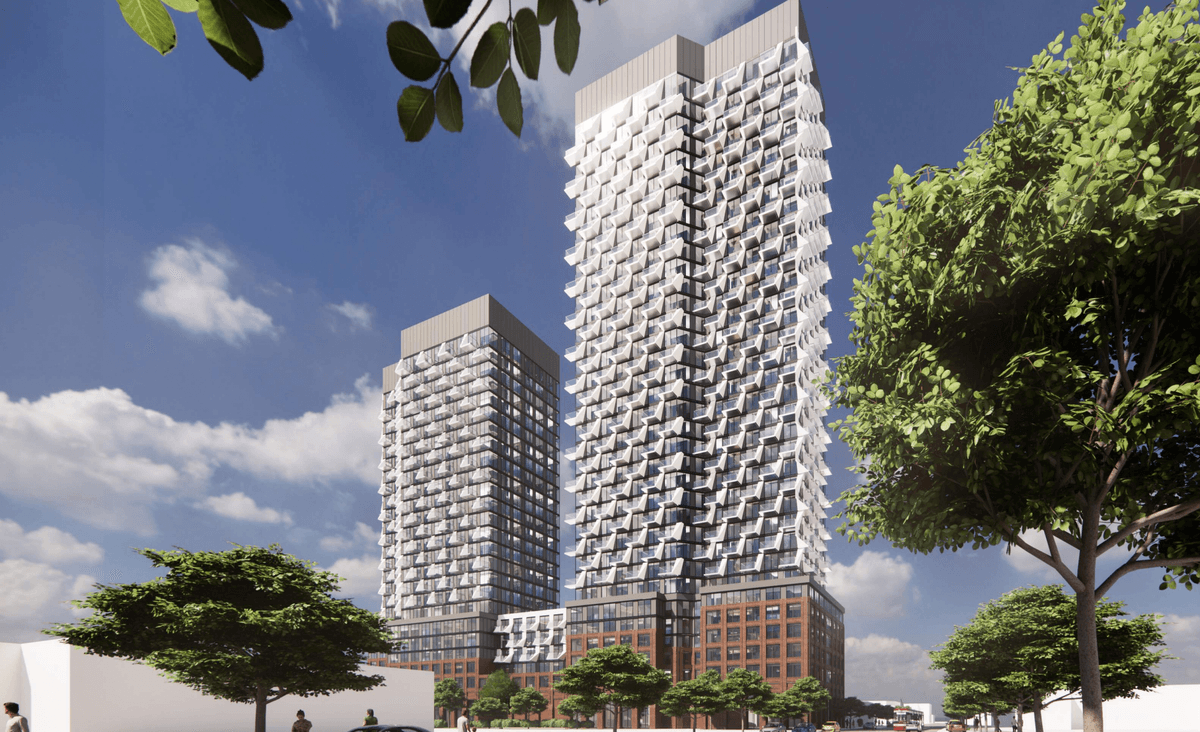The Canadian Home Builders’ Association (CHBA) released its Housing Marketing Index (HMI) for Q2 2024 today, revealing a "broadly negative" home builder sentiment. Nationally, builder sentiment was negative for the eighth consecutive quarter, even lower than in Q1 2024.
Builder confidence is gleaned from CHBA’s HMI for single-family and multi-family builders, which "assesses current selling conditions, expectations for selling conditions over the next six months, and the level of sales office traffic," essentially indicating how many homes we can expect to be built in the coming months, and beyond.
This quarter, HMIs were down across the board. HMI for single-family builders recorded a score of 29.9 (out of 100), down five points from Q1 and down by an even bigger 10 point difference year-over-year. The multi-family HMI score was slightly higher at 32.5, but still lower than Q1's score of 37.9 and down by 8.5 points compared to Q2 2023.
What's worse, builder sentiment dropped even further in high population, low affordability areas that need new housing the most, like Ontario and BC. HMIs in the two provinces hit record lows this quarter, with Ontario earning a score of just 11.6 for both single- and multi-family HMI, pointing to "severe drops in housing starts ahead, and a worsening deficit in housing supply," says the CHBA media release. In BC, conditions aren't much. better, with a single-family HMI of 17.8 and a multi-family HMI of 32.5.
The issue is that home prices and the inability of buyers to access mortgages in those provinces mean sales aren't moving. And on top of that, Ontario and BC are home some of the country's largest urban centres, which have high development taxes, municipal red tape that stifles supply, and the biggest housing supply deficits in the country, putting additional upwards pressure on prices.
“The slowly dropping interest rate environment is not enough to counter the restrictive mortgage rules contributing to buyers’ inability to enter the market with today’s house prices," says Kevin Lee, Chief Executive Officer of the CHBA. "Canada continues to need both more supply and changes to mortgage rules to help drive the construction of that supply."

Builders are seeing the impacts of these sub-optimal conditions in real time. According to the report, "48% of HMI respondents stated that they are building fewer units than they otherwise would have as a result of challenges with mortgage qualifications for their customers, and 22% have stated that lack of sales has led to the cancellation of projects. Overall, 61% of respondents expect to have an average of half the number of starts this year compared to 2023."
At the same time, the Canada Mortgage and Housing Corporation's (CMHC) data shows that, so far, we are ahead on housing starts compared to 2023. In fact, in July 2023, there were 20,531 housing starts recorded, as opposed to the 22,572 starts recorded this July. And on a year-to-date basis, we're currently up by 9,139 housing starts, compared to last year.
The reason CHBA's findings paint a different picture is because they don't count purpose-built rentals towards housing starts, while CMHC does. It's true that housing starts are up for purpose-built rentals, which CMHC calls a "positive step," but housing starts for houses and condos, i.e., homes that people can own, are way down.
"It is only by enabling young and new Canadians to enter homeownership that we can move towards increasing housing supply dramatically, as is required to close the 3.5 million housing supply gap identified and reaffirmed by the [CMHC]," said the report summary from CHBA.
Lee says change is needed if Canada wants to tally enough new home starts to meet demand. "If buyers can’t get better access to mortgages, and municipalities don’t lower development taxes and address the barriers to home building, the chronic undersupply of homes will only get worse in many areas of the country, which will drive up house prices again," he says. "Much more policy change is needed to turn the tides and get housing supply momentum underway."
Lee did point to the introduction of 30-year mortgage amortizations as a step in the right direction, but stressed that more action is needed. "We do need more relief on the mortgage front though, like expanding 30-year amortizations on all insured mortgages for new construction,” he said. “We also need revisions to the mortgage stress test to make it dynamic and lower it at higher rates. Every level of government must tackle this problem from every angle, in concert.”
- Insider: When It Comes To New Housing, Will Governments Ever Listen To The Experts? ›
- Housing Affordability Has Improved In 80% Of Major Markets. So Why Doesn’t It Feel Like It? ›
- Ontario’s Planning Policy Emphasizes Affordable Housing Minimums, Mall Redevelopments ›
- GTA New Home Sales Sink To An "All Time Low" In July ›
- Canada Housing Starts Still 'Well Below Required Amount' ›
- Housing Starts Rise 8% In October, Affordability Far Off ›





















